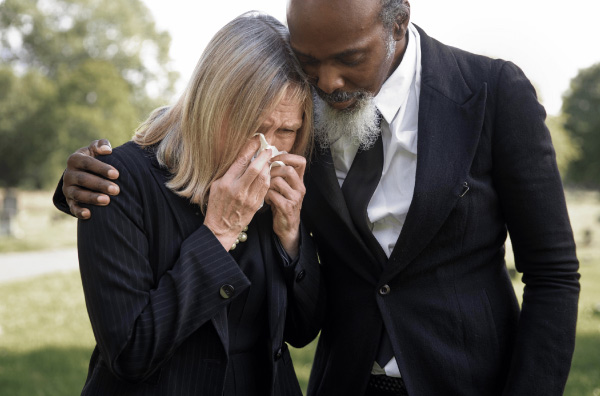Grief after the loss of a loved one can be funny when you think about it. We all face it at some point in our lives. Death and grief are universal experiences, yet they affect each of us individually. There are times when grief can consume us, making us feel that the pain will never ease, and other times when it’s a dull ache, serving as a reminder of who we have lost. There can be times we feel ok, and then it comes out of nowhere, hitting us like a truck.
I have been a Geriatric Social Worker for over ten years and trained as an End-of-Life Doula/ Death Doula for a year and a half. An end-of-life doula, or death doula, is trained to provide holistic, emotional, spiritual, and physical support, as well as education about the dying process, to both the dying person and their loved ones. The goal is to empower the dying person and their loved one to have the end-of-life journey they desire. A death doula can also assist with early grief throughout the journey and help with reprocessing once the terminally ill person has passed.
For over ten years, I have worked with aging-related diagnoses and symptoms, sickness, dementia, death, dying, and grief. Even with all that experience, I still fall victim to the way grief after loss can hit you unexpectedly.
I realized the magnitude of this recently with two separate events related to the passing of my paternal grandfather last April. The first was when my husband and I decided to hang up some décor in our living room. We had taken everything down almost two years ago to repaint the walls and never got around to hanging things back up. My husband told me we needed to put something on the walls, so I went looking for things in the attic.
While up there, I came across paintings my grandfather had done. He had been an avid painter as one of his hobbies in his adult life, and his work was incredible. Many of his paintings were given to his children and grandchildren or made into greeting cards that he mailed to friends and family—just a small piece of the huge legacy he left behind.
A few months before his passing, I was able to visit him and my grandmother at the Continuing Care Retirement Center (CCRC), where they were living. At that time, she was in independent living, and due to the progression of his dementia, he was in memory care. My grandmother had some of his paintings sitting out and asked if I wanted to go through them and take any. I took one for my brother, who was not there that day, and one for my daughter, who met him for the first and only time that day. When I found those paintings in the attic, I brought them down, and my husband and I hung two on our living room walls.
As I stood looking at the paintings, I was overcome with grief, even though it had been well over a year since his passing. I got choked up looking at a piece of his legacy that has been passed down to me. A piece of his legacy that I can share with my family and anyone who comes into my home.
The second time grief after loss struck me unexpectedly was when I reached out to a friend about his wife’s baby shower. They had sent out Evites, and I had to ask him about the details, a little embarrassed to admit that I was having trouble finding the Evite among the 30,000 emails in my inbox. That night, my husband asked me why I didn’t just delete everything and start fresh. I scrolled all the way down and was reminded of why I don’t delete everything – emails from my grandfather sit at the bottom of my inbox from 2018 before his dementia progressed to the point where he could no longer email me. I found myself rereading the emails with tears in my eyes but a smile on my face.
Exploring legacy and grief after loss is a big part of a death doula’s work. Helping individuals shape what they leave behind, especially tangible items for loved ones, is important for the dying person and their friends and family. I consider myself lucky to have items that remind me of my grandfather’s legacy, and while they can still stir those feelings of grief within me, I look forward to sharing them and stories about him with my daughter.


